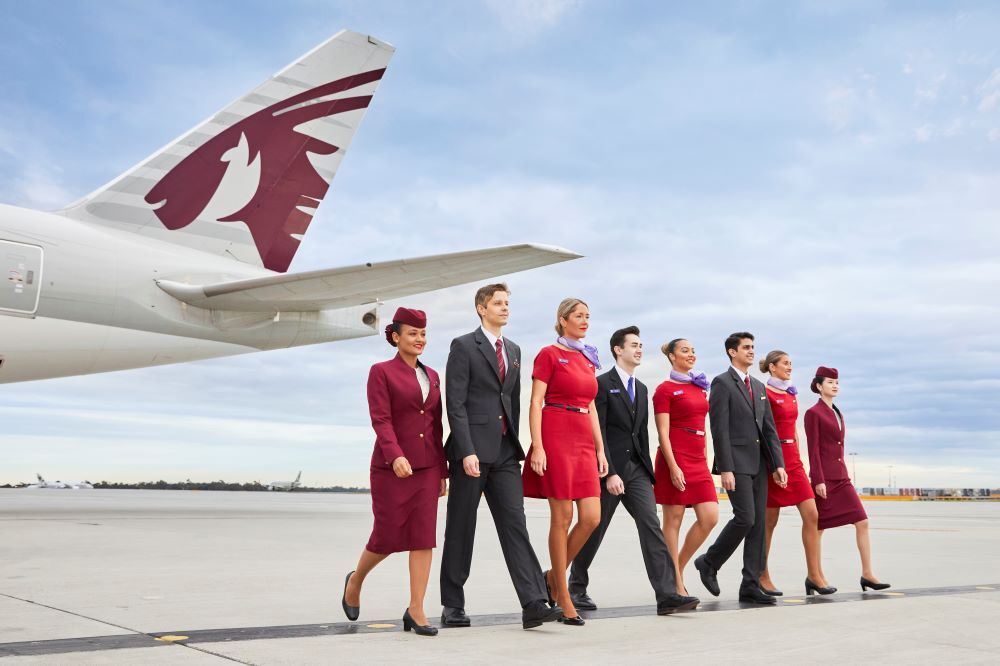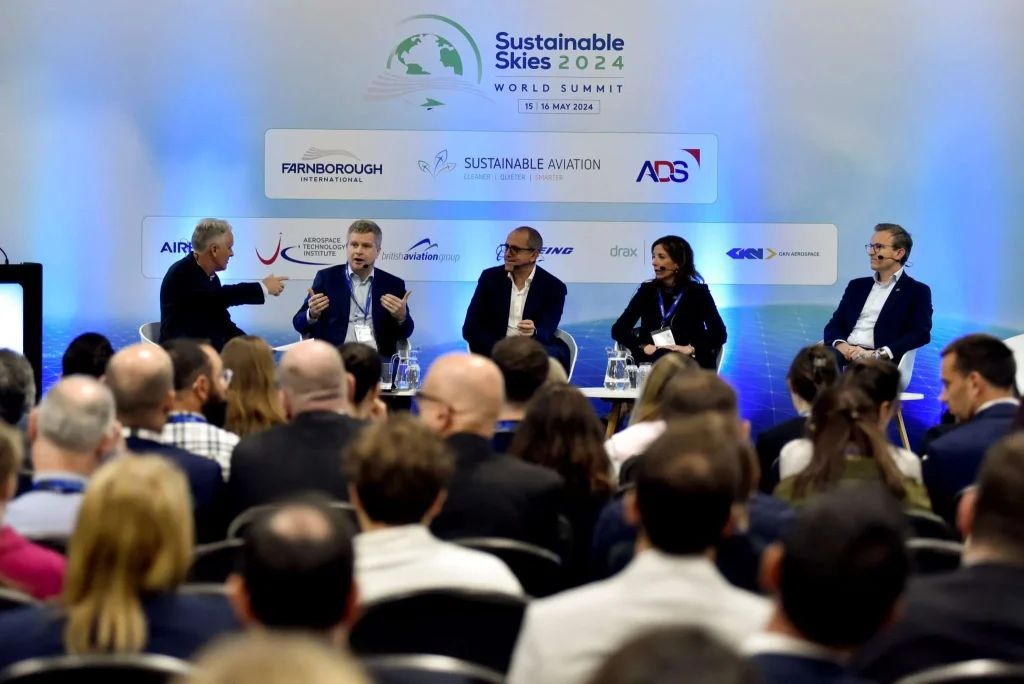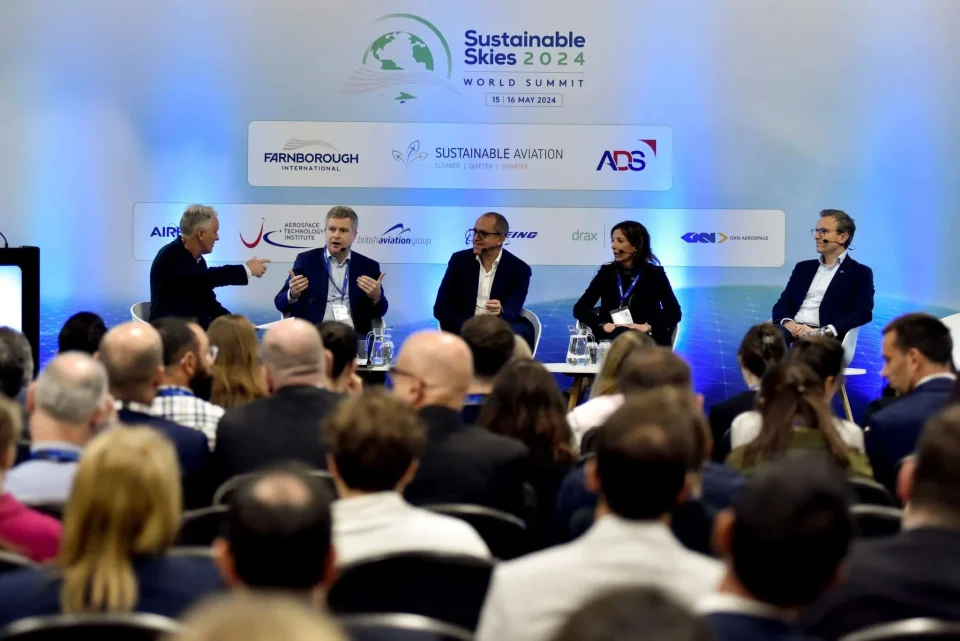In a move toward decarbonising global aviation, the International Air Transport Association (IATA) recenlty unveiled its SAF Registry. With this latest step, we are looking at what this means for the MENA aviation industry and which airlines are poised to make sustainable changes to their fuelling.

What is the IATA SAF registry?
This innovative global tracking system, now managed by the Civil Aviation Decarbonization Organization (CADO) is designed to verify every transaction involving Sustainable Aviation Fuel.
Its primary aim is to create a transparent marketplace where each gallon of SAF is accounted for, ultimately supporting the industry’s march toward net-zero emissions. Airline stakeholders worldwide now have a tool for ensuring that their investments in SAF translate directly into verifiable emissions reductions.
Why is it needed?
Aviation contributes roughly 2-3% of global carbon emissions, and while SAF is made from renewable sources like cooking oil or agricultural waste, its adoption has had challenges due to limited production and lack of transparency.
IATA’s registry is set to change that by eliminating issues like double counting and streamlining the connection between fuel producers and airlines. This newly launched platform ensures that airlines around the globe, and even corporate customers seeking to offset travel emissions, can make their SAF investments count.
MENA airlines: On the cusp of a SAF revolution?
While innovations are happening around the globe, the spotlight is turning to MENA, known for its reliance on fossil fuels to see if its airlines are ready to adopt sustainable fuels. Historically the scarcity of SAF posed a supply-chain hurdle for the region logistically and economically. However many operators are seeking collaborative solutions, and some airlines have already taken steps by expanding SAF cooperation including:
Qatar Airways

After committing to using 10% SAF by 2030, the airline recently announced collaboration with Virgin Australia and Renewable Developments Australia (RDA). This partnership aims to establish a fully integrated Ethanol to Jet (EtJ) facility in North Queensland that could produce up to 96 million litres of SAF per year. The project is expected to deliver significant greenhouse gas emissions reductions and foster local economic development. Qatar Airways are also pursuing SAF supply agreements at various international airports.
Emirates
In 2023, Emirates became the first airline in the world to operate 100% SAF fuel on an A380 demonstration flight to determine the viability of sustainable fuelling on the industry. Emirates have continued to progress its journey to sustainable fuelling and have since signed agreements with NESTE for more than 3 million gallons of blended SAF in 2024 and 2025.
Etihad Airways
After using SAF for the first time in 2022 as the first international airline to take off from Japan using sustainable fuel, Etihad has continued to explore new ways to incorporate this long-term. This includes a fuel partnership with ITOCHU and NESTE as well as joining a UAE-led consortium to research advanced aviation fuel.
Elsewhere in the sector
Airbus signed to incentivise SAF usage
SAF One and Airbus signed a Memorandum of Understanding in February 2025 to promote sustainable aviation fuel adoption. Under the agreement, both companies will work with airlines in the UAE to advocate and expand the use of SAF produced at SAF One’s facilities, leveraging their networks to drive market development.
Rolls-Royce signed a synthetic SAF agreement with CirculAIRity
In the private aviation sector, engine manufacturer Rolls-Royce recently concluded tests of its in-service engines running on 100% SAF, affirming the fuel’s viability in powering modern aircraft. The demonstration is expected to set the standard for sustainable private aircraft fuelling.
UAE’s research into SAF development
The UAE has set a goal of producing 700 million litres of SAF per year by 2031. Region-specific options including algae are looking promising thanks to the availability of unused land, large amounts of sunlight and available seawater. Research is actively being done at Abu Dhabi’s Algae Research Laboratory and Microbial Environmental and Chemical Engineering Laboratory (MECEL) for saltwater-tolerant algae strains for biofuel production.
Looking ahead: The Sustainable Skies World Summit 2025

Adding momentum to these transformative trends is the upcoming Sustainable Skies World Summit 2025, scheduled for 14-15 May. This high-profile event is set to bring together international regulators, airline executives, and sustainability innovators for deep-dive sessions into the challenges and breakthroughs shaping sustainable air travel. Key discussions will likely address how transparency mechanisms like the SAF Registry can spur broader adoption of renewable fuels, examine the scalability of SAF production, and consider whether regional players in MENA will be able to shift from traditional jet fuel to sustainable alternatives.
It’s clear the big players in MENA aviation are already taking the steps and commitments towards sustainable fuelling options, and as research developments continue in the region it makes sense that low-cost carriers will do the same when it becomes viable.



